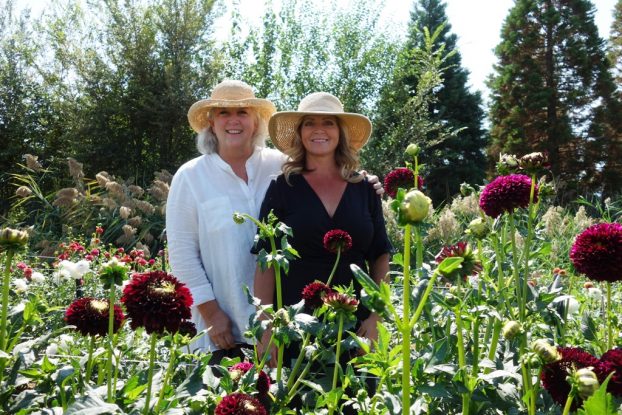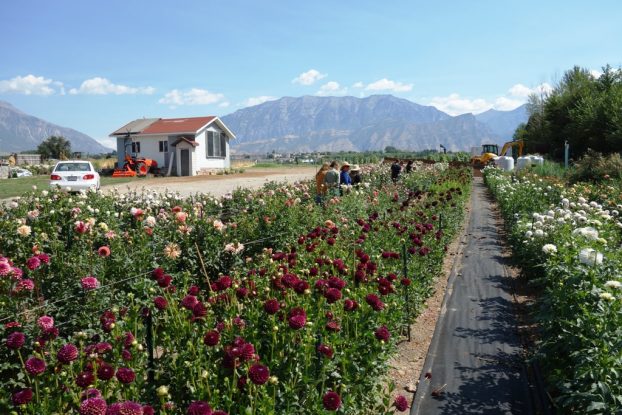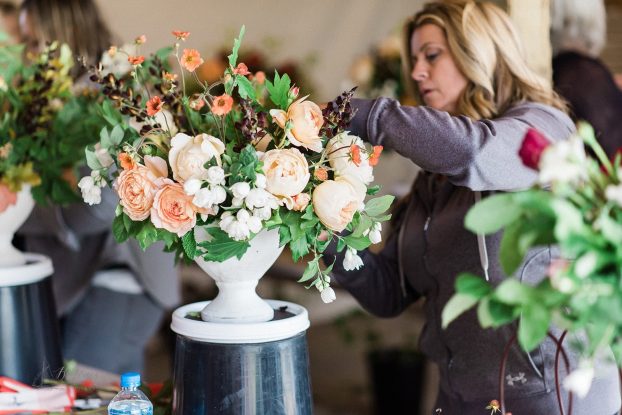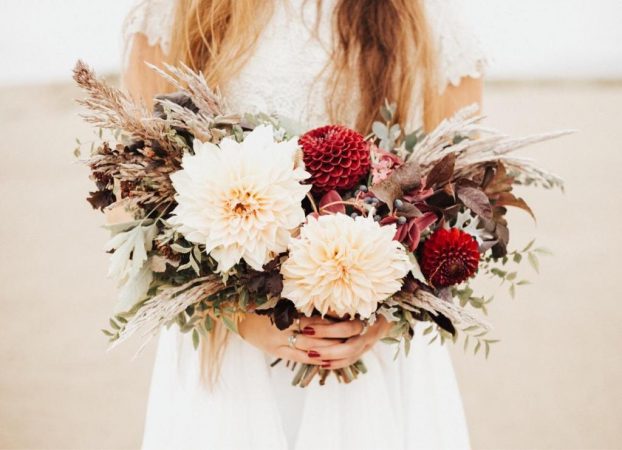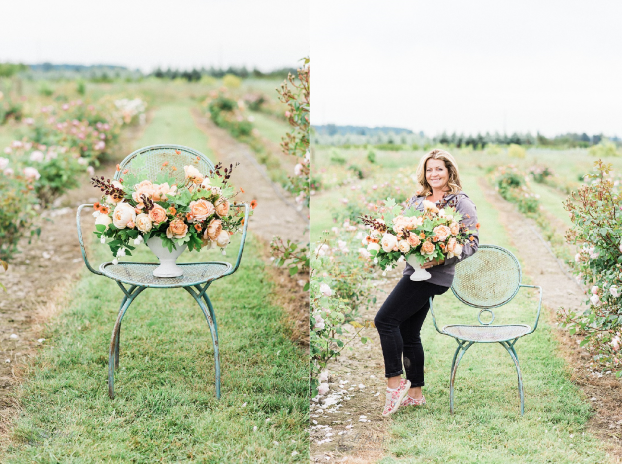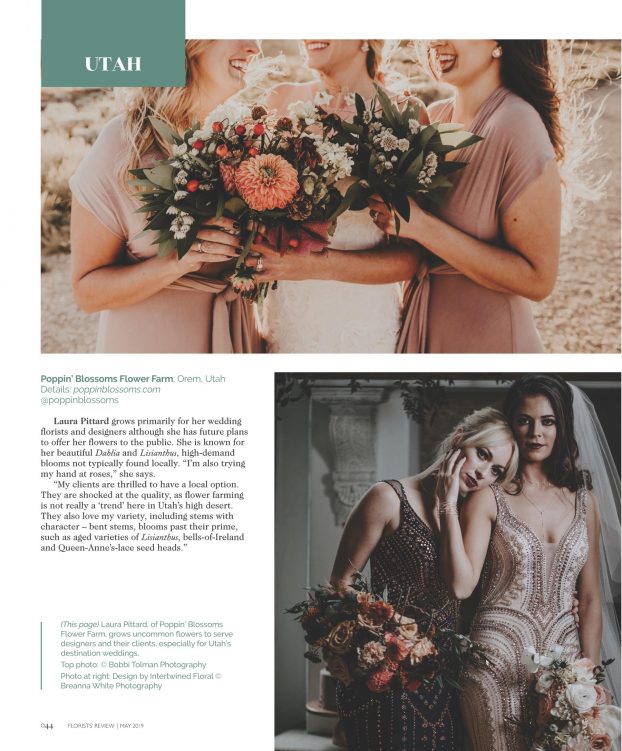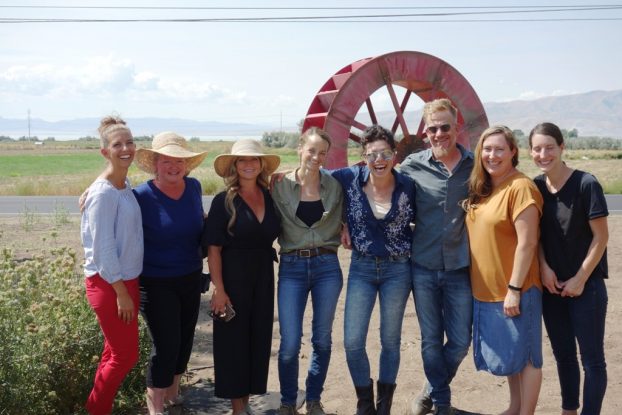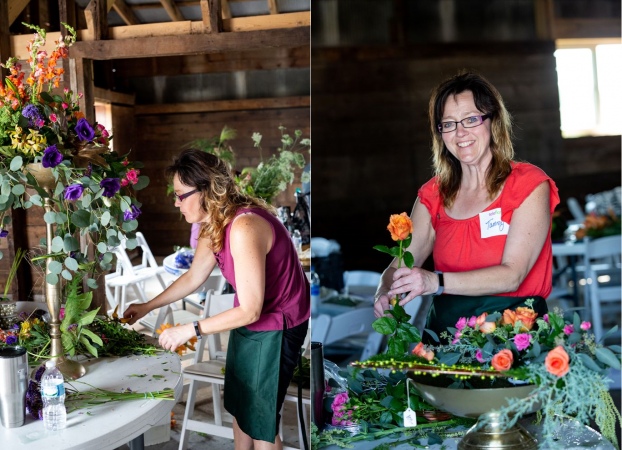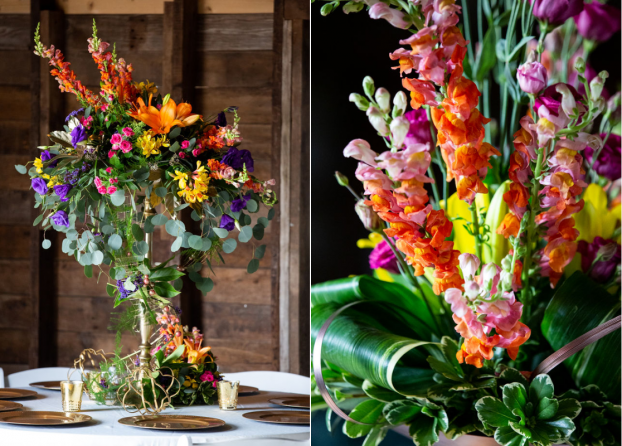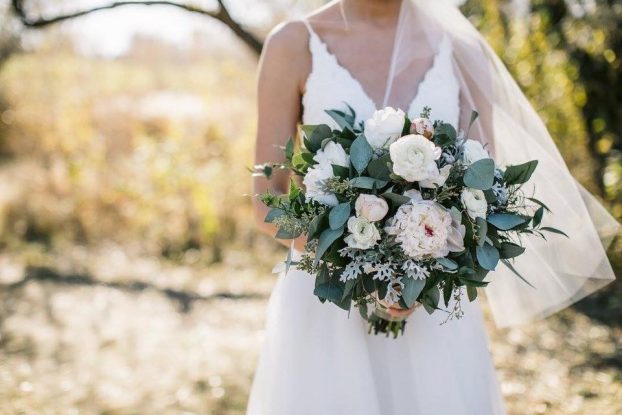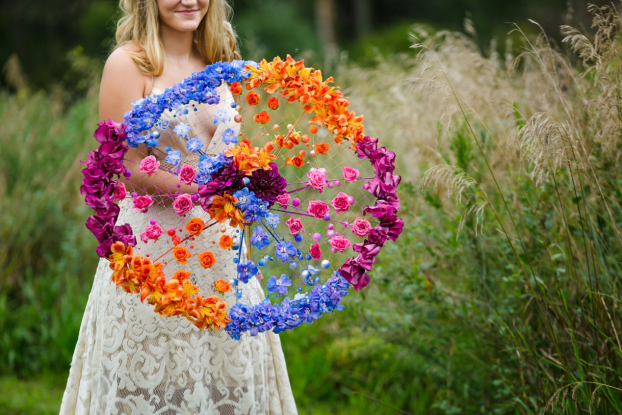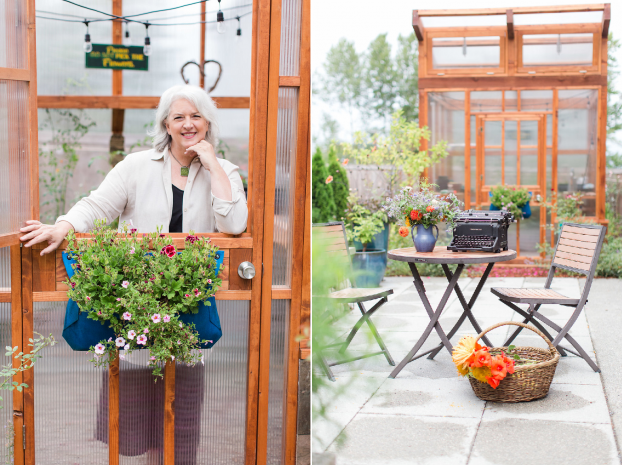Podcast: Play in new window | Download
Subscribe: Apple Podcasts | Podcast Index | RSS | More
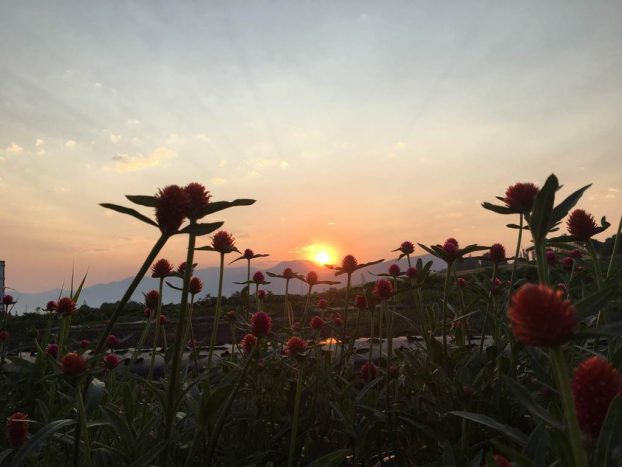
The timing is perfect for today’s all-Utah episode. As we’re working our way through the A-to-Z alphabetical list of U.S. states, this week we land on Utah, sandwiched between last week’s Texas focus and next week’s Vermont focus!
You will recall that I visited Utah this past September to meet with a dynamic group of flower farmers and farmer-florists at Poppin’ Blossoms, where Laura Pittard hosted a wonderful gathering and joined me as a podcast guest. Well, I was so inspired by that visit and wanted to learn more. Today’s episode will be educational as I speak with the leaders of two groups of Utah flower farmers whose models are replicable in other markets.
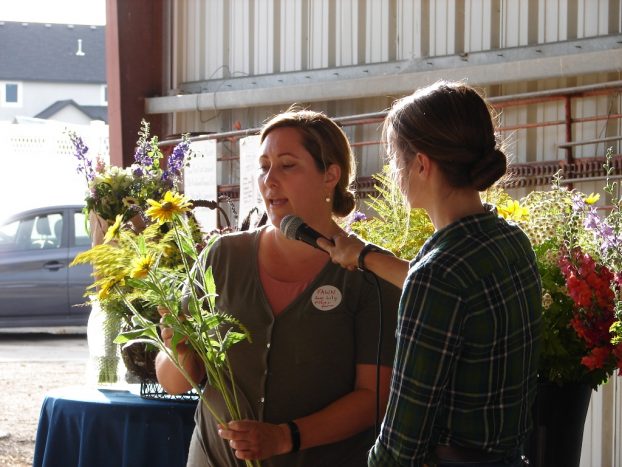
First you’ll hear from Heather Griffiths of Salt Lake City. She is the president of the Utah Cut Flower Farmer Association, a new nonprofit formed to promote local and sustainable floriculture by supporting local flower farms through education, outreach, and research programs. Formed in May 2019, the association currently has 33 members, including certified farms and associated members. The group also focuses on educating flower lovers of the economic and environmental impact of local flowers, as well as the diversity of flowers available through Utah Flower Farms.
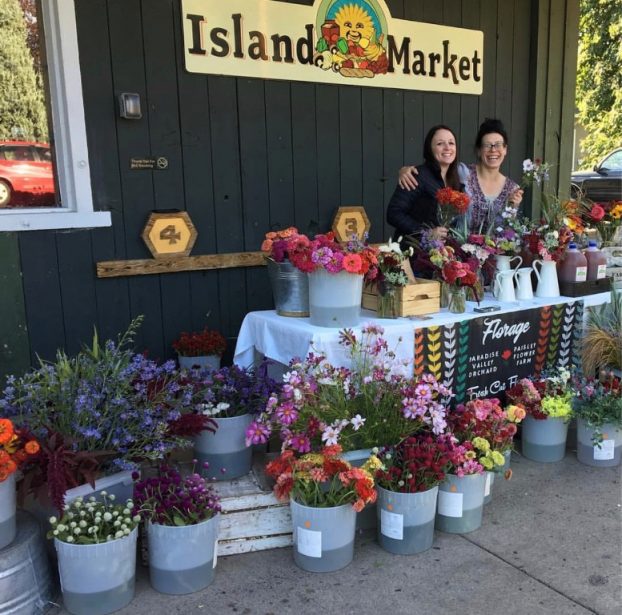
Next, you’ll meet Ali Harrison and Lindy Bankhead, two women who formed Florage, an informal flower cooperative based in Cache Valley, Utah, in the northeastern part of the state near Logan. Florage markets and distributes their own flowers as well as the production of several other farms. Florage is a Slow Flowers member organization committed to using sustainable and organic methods to lessen their footprint on the earth. No chemicals or preservative spays are used in bringing their gorgeous blooms straight from their gardens to the table.
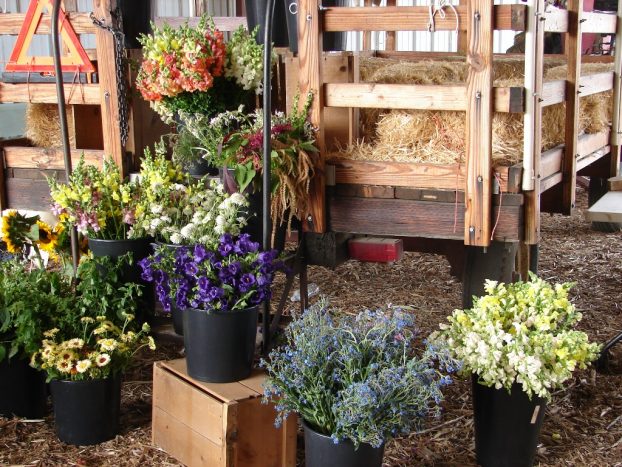
This is a juicy episode, packed with ideas and inspiration from three women who didn’t sit around and ask permission to forge ahead to create a market for locally-grown flowers in a state not often associated with ornamental horticulture or cut flowers.
Here’s more about all three of these guests:
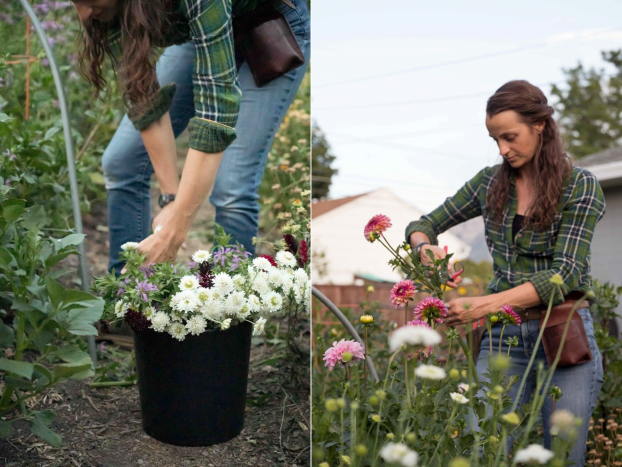
Slow Flowers member Heather Griffiths owns Wasatch Blooms, a Salt Lake City-based “urban flower farm.” She writes this on her “about” page: “When you hold my flowers, when you breathe them in deep, I want you to feel the immense love and connection that I do. I want the flowers I grow to convey the message of profound love for each other, the earth, and ourselves. Because Love is what drives me to grow flowers. I grow sustainably to feed the soil and benefit my community and environment. I blend permaculture ethics with market gardening to grow flowers that do more than decorate the table, but that also protect our pollinators and create a diverse ecosystem for the unseen members of our community. Farming is my passion and my calling. Farming is my artistic expression. Flowers are my heart wrapped in petals.”
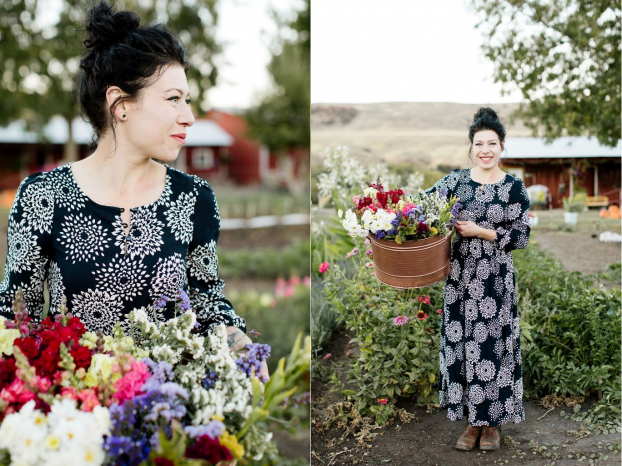
Ali Harrison owns Paradise Valley Orchard with her husband Lorin. Their flower passion is fueled by the desire to bring natural beauty and art into the lives of clients. Paradise Valley Orchard is a mid-century apple orchard and small farm that serves as a backdrop for the weddings and events. As an artist and self-proclaimed hippie, Ali uses her creativity on the farm daily. Finding solace in getting her hands dirty, Ali sees the farm as her canvas and the flower garden her palette.
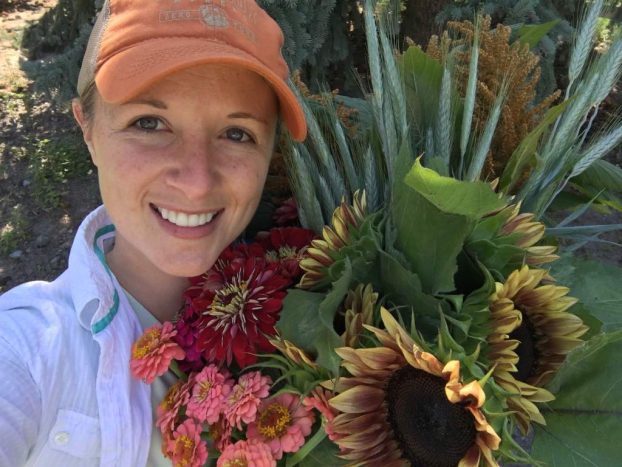
Lindy Bankhead owns Paisley Flower Farm in Cache Valley, Utah. She is passionate about growing flowers and vegetables as organically as possible. Lindy feels blessed to not only be able to raise her four young children alongside the flowers, but to also deliver freshly-cut stems to local florists and customers—people who value the high quality and sustainability of the vibrant blooms. She came to flower farming in 2012, equipped with a degree in Landscape Architecture from USU, a Master Gardener Certification, and years of experience working at local greenhouses and nurseries. With the help of her patient husband and family, she’s transformed their 100-year old farm into a gorgeous, thriving cut flower operation.
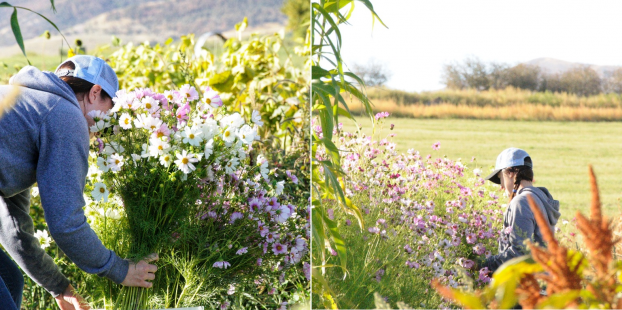
Here’s where you can find and follow today’s guests:
Utah Cut Flower Farms Association on Instagram
Paradise Valley Orchard on Facebook
Paradise Valley Orchard on Instagram
Paisley Flower Farm on Facebook
Paisley Flower Farm on Instagram
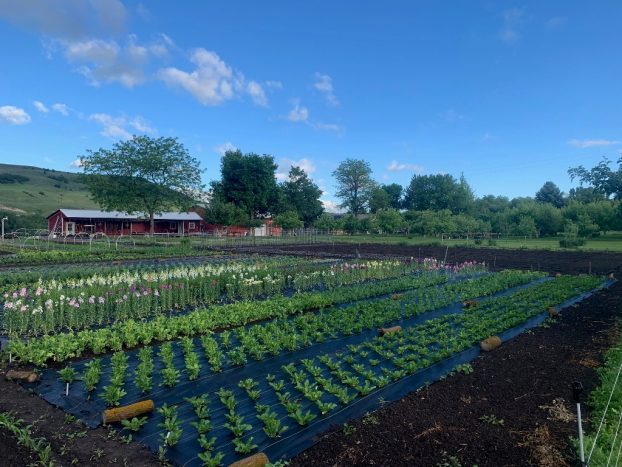
Thanks so much for listening in on today’s inspiring conversations. I have a big grin on my face as I reflect on the energy and enthusiasm shared by these floral entrepreneurs in Utah. There’s lots more to come from this conversation and I’m already eager to plan future episodes triggered by some of the topics discussed today — from learning more about Dr. Melanie Stock’s cut flower research at the Utah State University to hearing how an established cut flower farm like Bindweed has changed hands from its founders to new owners Ali and Lorin Harrison. Not enough time today, but I hope to revisit Utah and the Slow Flowers members there in 2020. Stay tuned!

The Slow Flowers Podcast has been downloaded more than 547,000 times by listeners like you. Thank you for listening, commenting and sharing – it means so much.
As our movement gains more supporters and more passionate participants who believe in the importance of the American cut flower industry, the momentum is contagious. I know you feel it, too. I value your support and invite you to show your thanks and with a donation to support my ongoing advocacy, education and outreach activities. You can find the donate button in the column to the right.
THANK YOU TO OUR SPONSORS
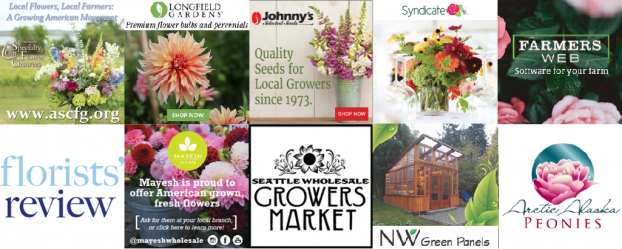
Florists’ Review magazine. I’m delighted to serve as Contributing Editor for Slow Flowers Journal, found in the pages of Florists’ Review. Our partnership with Florists’ Review is such a valuable one, providing a forum for beautiful and inspiring editorial content in the #slowflowersjournal section – month after month. Thanks to Florists’ Review, you can now order a subscription for yourself + give one as a gift this holiday season. Set your 2020 intention to enrich your personal and professional development! Click here to find the Buy-One-Gift-One special offer for members of the Slow Flowers Community.
NW Green Panels. Based in Madras, Oregon, NW Green Panels designs and constructs a wide array of wood-framed greenhouses offering versatility, style and durability. Their greenhouses are 100% Oregon-made using twin-wall polycarbonate manufactured in Wisconsin, making NW Green Panel structures a great value for your backyard. The 8×8 foot Modern Slant greenhouse has become the essential hub of my cutting garden — check out photos of my greenhouse in today’s show notes or visit nwgreenpanels.com to see more.
Mayesh Wholesale Florist. Family-owned since 1978, Mayesh is the premier wedding and event supplier in the U.S. and we’re thrilled to partner with Mayesh to promote local and domestic flowers, which they source from farms large and small around the U.S. Learn more at mayesh.com. Mayesh recently launched a brand new ecommerce web site. I’m particularly excited about The Product Planner, the newest eCommerce addition, which allows florists to create recipes for events that then calculate the number of stems needed, generating a quote for that order. There’s also ramped up navigation designed to find quality flowers and more educational resources.
Seattle Wholesale Growers Market, a farmer-owned cooperative committed to providing the very best the Pacific Northwest has to offer in cut flowers, foliage and plants. The Growers Market’s mission is to foster a vibrant marketplace that sustains local flower farms and provides top-quality products and service to the local floral industry. Visit them at seattlewholesalegrowersmarket.com.
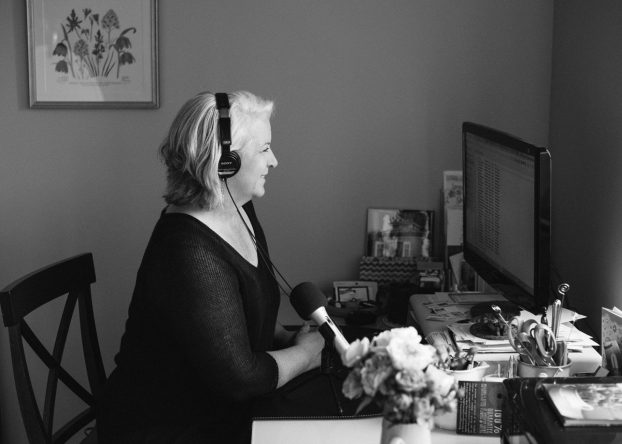
I’m Debra Prinzing, host and producer of the Slow Flowers Podcast. Next week, you’re invited to join me in putting more American grown flowers on the table, one vase at a time. And if you like what you hear, please consider logging onto iTunes and posting a listener review.
The content and opinions expressed here are either mine alone or those of my guests alone, independent of any podcast sponsor or other person, company or organization.
The Slow Flowers Podcast is engineered and edited by Andrew Brenlan. Learn more about his work at soundbodymovement.com.
Music Credits:
Betty Dear; Gaena
by Blue Dot Sessions
http://www.sessions.bluehttps://creativecommons.org/licenses/by-nc/4.0/
Lovely by Tryad
http://tryad.bandcamp.com/album/instrumentals
http://creativecommons.org/licenses/by-sa/3.0/
In The Field
Music from: audionautix.com









